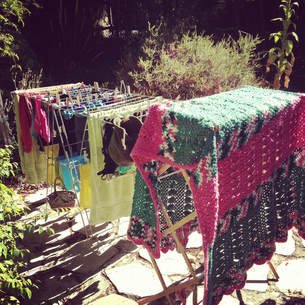 Reflecting on the significance of Mother’s day my daughter told me: “Today, everybody should celebrate two mothers: our birth mother and also Mother Earth.” And she is right: the Earth is loving, nurturing and generous in supporting all of its creatures. What can we learn from our mothers and from the Earth as we seek to lead change toward peace and sustainability? Mother’s day is a wonderful opportunity to celebrate the love, care, and service that we receive from our mothers. A day to appreciate the best of women’s gifts to the world. The maternal instinct is a biological characteristic of women—regardless of biological motherhood—and one of the gifts we can bring forth, as channels of feminine energy into the world. It is promising to see the increased interest and recognition of the importance and need of this feminine energy in society. But regardless of this progress, there are many cultures and places where women – half of humanity – continues to experience discrimination and oppression. The history of gender inequality has deprived the world and its institutions of the gifts of women. According to the International Labor Organization, 48.4 percent of the world’s female population above the age of 15 are economically inactive, compared to 22.3 percent for men. “More women than men take up low-pay and precarious work, either because this is the only type of job made available to them or because they need to find something that allows them to balance work and family responsibilities. Men do not face these same constraints.” Women do two thirds of the work and get 10% of the income since most of their work does not contribute to GDP: caring for children and elders, house chores, cooking. We have created an economic system that ignores the contribution of women’s work for the survival and well-being of our species. Riane Eisler’s organization, the Center for Partnership Studies, has launched a campaign for Caring Economics which seeks to make this invisible work visible as a strategy for a more just, humane, and sustainable future. Eisler is among the social scientists who connect the lack of appreciation for activities and attitudes traditionally qualified as feminine as a root problem for the contemporary socio-ecological crisis. Caring for others, connecting, promoting open communication, non-violence, flexibility and empathy are stereotypically feminine but not exclusive of women. We all know compassionate and sensitive men and women truly interested in the well-being of people and planet. I like to think of these men and women as simply more fully human. And “more human” human beings—people with greater integrity and with balanced feminine and masculine energies—are what families, communities, organizations and society at large need. Economic prosperity, social well-being and ecological regeneration require caring for the whole. There is no such thing as the exclusive or isolated interests of an individual person, organization, or nation. We are interconnected, and a viable future depends on our ability to act on this understanding. Social enterprises such as B-Corporations and the emergence of the Fourth Sector are indications that a new generation of leaders are putting into practice this way of thinking and feeling. Businesses with social missions, non-profits that generate their own revenue, and other forms of hybrid initiatives are blurring the boundaries of what used to be fragmented into private, public and social initiatives. Problems such as poverty and the wide range of environmental challenges require more holistic ways of being. Women have the innate capacity and the responsibility to lead the way.
0 Comments
Leave a Reply. |
AuthorKathia Castro Laszlo, Ph.D. Archives
August 2015
Categories
All
|

 RSS Feed
RSS Feed